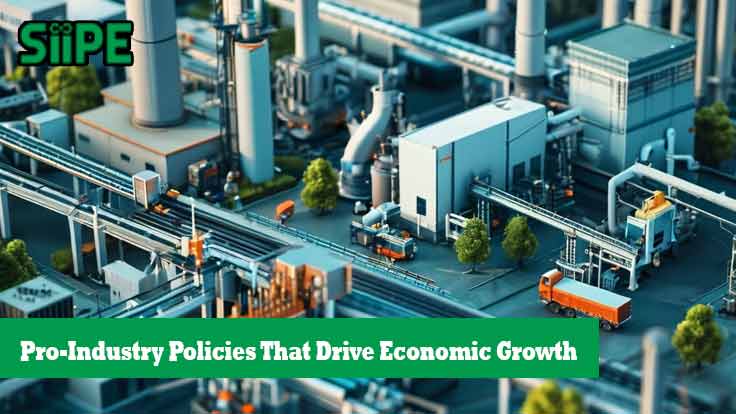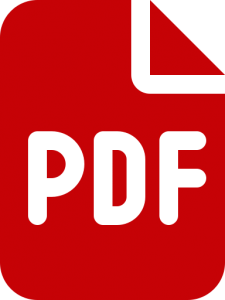In today’s competitive global economy, governments are under increasing pressure to support industrial growth. Pro-industry policies are strategic measures designed to create a business-friendly environment, stimulate private sector investment, and enhance economic competitiveness. These policies play a crucial role in driving long-term economic growth by supporting manufacturing, technology, infrastructure, and workforce development.
What Are Pro-Industry Policies?
Pro-industry policies refer to government actions that promote industrial development and create favorable conditions for businesses to thrive. These policies may include:
-
Tax incentives for manufacturing firms
-
Simplified business regulations
-
Investment in industrial infrastructure
-
Access to financing and credit for enterprises
-
Education and training programs to build a skilled workforce
By reducing barriers and increasing incentives, these policies aim to boost productivity, attract foreign investment, and create high-value jobs.
The Link Between Industry and Economic Growth
Industries are the engines of innovation and job creation. When industries grow, they generate value-added products, enhance exports, and contribute to GDP. A thriving industrial sector creates a ripple effect across the economy, benefiting supply chains, service providers, and consumers.
Governments that focus on industrial development often experience:
-
Increased GDP growth rates
-
More resilient job markets
-
Higher exports and trade balance
-
Technological advancements
This positive feedback loop reinforces the importance of implementing policies that sustain industrial momentum.
Key Components of Effective Pro-Industry Policies
Not all pro-industry policies deliver the same impact. Successful approaches typically share several core components:
1. Infrastructure Development
Efficient transport, reliable electricity, and advanced digital infrastructure are the backbones of industrial activity. Public investment in roads, ports, and power grids reduces logistical costs and attracts manufacturers. Industrial zones or parks with shared infrastructure can lower startup barriers for new businesses.
2. Streamlined Regulations
Complex bureaucratic procedures can discourage entrepreneurs. Pro-industry strategies often involve simplifying licensing processes, speeding up permit approvals, and eliminating redundant regulations. A transparent regulatory environment builds trust and reduces the cost of doing business.
3. Innovation and R&D Support
To stay competitive, industries must constantly innovate. Governments can support innovation through grants, tax credits, and partnerships with universities. Encouraging research and development (R&D) leads to better products, efficient production methods, and technological leadership.
4. Workforce Development
A skilled labor force is essential for industrial growth. Pro-industry policies often focus on technical education, vocational training, and apprenticeships. Programs that match labor market demands with education ensure that businesses have access to qualified workers.
5. Access to Capital
Startups and expanding firms need funding. Industrial policies can facilitate access to affordable credit through public banks, loan guarantees, and private-public investment funds. Financial support helps companies scale and modernize operations.
Case Study: The Role of Industrial Parks
Industrial parks are a prime example of policy in action. By clustering businesses in a designated area with dedicated infrastructure, utilities, and services, industrial parks reduce overhead and encourage collaboration. These zones often receive special tax breaks and fast-track permits, making them attractive to investors.
The clustering effect also fosters innovation, supply chain efficiencies, and talent mobility. Many countries have adopted this model to attract both domestic and foreign investment in manufacturing, logistics, and technology sectors.
Environmental Sustainability in Industry
Modern pro-industry policies are increasingly integrating sustainability. Governments are encouraging the use of clean energy, energy-efficient machinery, and waste-reduction practices. Eco-industrial parks and circular economy incentives are helping reduce environmental impacts while maintaining industrial productivity.
Digitalization and Industry 4.0
The rise of smart manufacturing and digital technologies has transformed industrial development. Pro-industry policies now emphasize support for Industry 4.0 technologies such as automation, robotics, IoT, and AI. Governments can fund pilot projects, provide tax breaks for adopting digital systems, and develop digital skills programs.
This shift not only improves competitiveness but also opens new markets and business models.
Measuring the Impact of Pro-Industry Policies
To ensure effectiveness, policymakers must track the impact of industrial initiatives. Key performance indicators include:
-
Industrial output growth
-
Employment rates in manufacturing
-
Increase in foreign direct investment (FDI)
-
Export performance
-
Productivity gains
Regular monitoring and stakeholder feedback help refine policies over time.
Challenges in Implementation
Despite the benefits, implementing pro-industry policies is not without challenges:
-
Budget constraints may limit infrastructure or R&D funding
-
Corruption or inefficiency can delay project execution
-
Poor coordination between central and regional governments may hinder outcomes
-
Environmental concerns may conflict with industrial expansion goals
To overcome these issues, strong governance, public-private collaboration, and long-term planning are essential.
The Future of Pro-Industry Strategies
As economies become more interconnected and technology-driven, the scope of pro-industry policies is evolving. Future strategies will likely focus on:
-
Green and sustainable manufacturing
-
Advanced digital transformation
-
Global supply chain integration
-
Inclusion of small and medium enterprises (SMEs)
-
Resilience against geopolitical and economic shocks
Proactive and adaptive policies will be crucial in keeping industries competitive in a fast-changing global landscape.
Pro-industry policies are powerful tools for driving economic growth. When thoughtfully designed and properly implemented, they create the conditions for industries to innovate, expand, and generate prosperity. As the world faces economic uncertainty, climate change, and digital disruption, investing in robust industrial strategies has never been more important.










